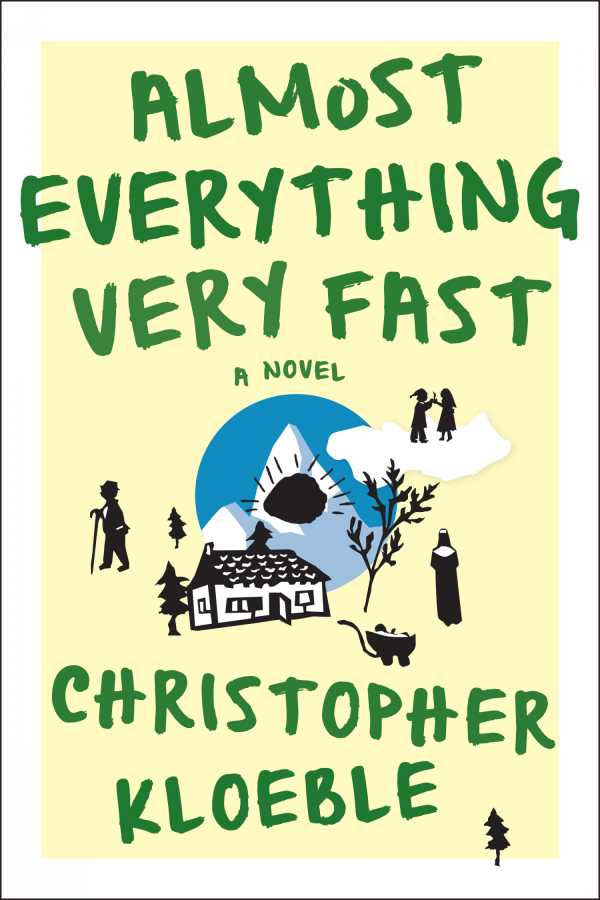Almost Everything Very Fast
Subtle hints of German folklore run through this layered family saga.
Almost Everything Very Fast, German novelist Christopher Kloeble’s first book to appear in English, begins with a young man’s search to learn the identity of his mother and turns into an engrossing tale of a wayward family history. With themes of familial love, parenting, and identity, Kloeble’s dual narratives disturb and challenge beliefs about family roles and the importance of truth.
The year is 2002. Albert, a slightly pudgy but very mature nineteen-year-old whose mother is unknown to him and whose father is unable to care for him, makes his regular trip from St. Helena Orphanage to visit his developmentally disabled, brawny sixty-year-old father, Fred. Albert takes on the roles of caretaker and confidante. He also presses his father for details about his past, hoping to learn about his family roots.
From here, the narrative shifts, returning to 1912 and taking on the voice of Julius Habom, a whimsical and lascivious relative of Albert’s. Julius’s story includes sibling incest, patricide, and murder, with subtle hints of German folklore and myth.
Almost Everything Very Fast boasts a genial, ragtag cast of characters who accompany Albert, with Fred, on his journey to find his mother. Klondi, the Galoise-smoking next-door neighbor; Violet, Albert’s young, sexy lover; and Sister Alfonsa, the sardonic mother figure of Saint Helena’s, all carry their own truths and tragedies, and these add depth and texture to the novel. There is a ticking-clock element, as Fred reveals early on that he has only three months to live, creating a sense of urgency and suspense. Albert is forced to come to terms with Fred’s limitations.
The use of two narratives runs the risk of one overpowering the other, but Kloeble manages to find the balance quickly between the two equally engrossing tales. Almost Everything Very Fast is an intriguing take on parenting and the boundaries of love, overcoming familial legacies, and how unconventional relationships can fulfill the need for love just as well as the conventional.
Reviewed by
Monica Carter
Disclosure: This article is not an endorsement, but a review. The publisher of this book provided free copies of the book to have their book reviewed by a professional reviewer. No fee was paid by the publisher for this review. Foreword Reviews only recommends books that we love. Foreword Magazine, Inc. is disclosing this in accordance with the Federal Trade Commission’s 16 CFR, Part 255.

